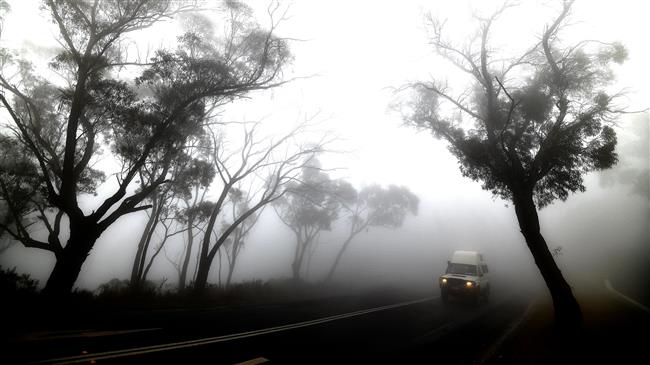Australiaís Prime Minister Scott Morrison has admitted partial responsibility in inadequately responding to the bushfires scorching land and killing people and wildlife across the country for months.

In an interview with ABC on Sunday, Morrison rejected criticism that his government had not done enough before the bushfire season started but admitted that once the fires started, some responses could have been different.
"There are things I could have handled on the ground much better," Morrison said, adding, however, "These are sensitive environments, there are very emotional environments; prime ministers are flesh and blood too in how they engage with people."
He also said he would propose a national review of the response to the bushfires. "There is obviously a need for a national review of the response," Morrison said.
Asked whether the review should be conducted by a powerful Royal Commission, the Australian prime minister replied, "I think that is what would be necessary and I will be taking a proposal through the cabinet to that end, but it must be done with consultations with the states and territories."
Faced with an increase of public pressure to tackle climate issues, Morrison also said his government would look into improving its performance on curbing emissions.
"We want to reduce emissions and do the best job we possibly can and get better and better and better at it," he said. "I want to do that with a balanced policy which recognizes Australiaís broader national economic interests and social interest."
Morrison had so far been defiant in rejecting any links between his governmentís conservative policies regarding climate change and the bushfires.
Opposition leader Anthony Albanese said on Sunday that the federal government should have acted earlier to address the disaster.
"The fact is that bushfires donít recognize state and territory boundaries," Albanese said. "And nor should the need for national leadership."
Thousands of Australians took to the streets on Friday to protest against alleged government inaction on climate change.
The deadly bushfires, which began nearly three months ago, have caused the deaths of at least 28 people and numerous animals and livestock.
The bushfires, which have also razed about 2,000 homes, are still raging across millions of acres of land.
The fires have emitted 400 megatons of poisonous carbon dioxide and produced harmful pollutants, the European Union (EU)ís Copernicus Program said.
Smoke from the bushfires has drifted across the Pacific, affecting cities in South America, and may have reached the Antarctic, the United Nations (UN)ís World Meteorological Organization has said.
About 100 firefighters from the United States and Canada are helping Australia extinguish the fires. More firefighters are expected to arrive in the coming weeks.
LINK: https://www.ansarpress.com/english/12661
TAGS:






























 online news tv
online news tv




